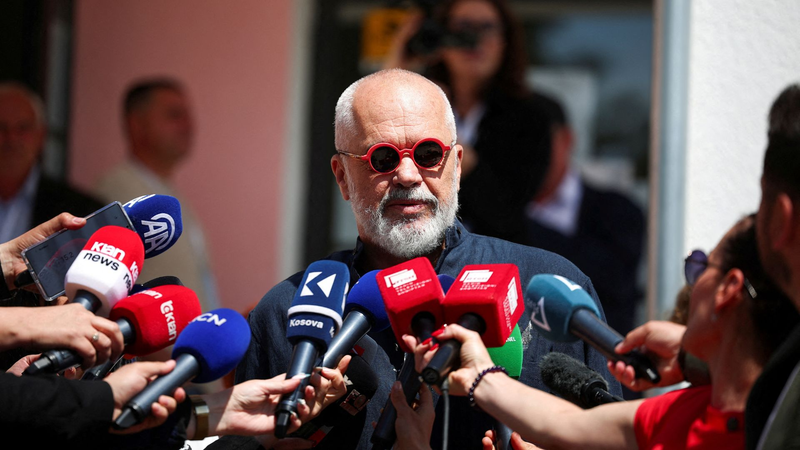Albania's most closely watched election in years wrapped up with familiar results: Prime Minister Edi Rama and his Socialist Party are on track for a fourth consecutive term. As ballots still get counted, the ruling party's victory highlights both political loyalty and deeper frustrations.
Voter turnout fell below expectations, reflecting fatigue and disillusionment among citizens. Despite mounting corruption scandals—from multi-million-euro waste management deals to questions over media freedom—the opposition struggled to unite or offer a compelling alternative.
Political analyst Mentor Kikia told CGTN, "This result might reflect the will of the majority, but it's also a failure of the opposition. Most people didn't vote for policy; they voted out of loyalty."
Rama's campaign hinged on a bold promise: full EU membership by 2030, with all accession chapters closed by 2027. It played well on the campaign trail, but EU officials have stressed that substantive reforms—on judicial independence, media freedom and anti-corruption—must precede any timeline.
For many Albanians, joining the European Union remains a top national priority. Yet concerns are growing that prolonged one-party dominance could weaken democratic institutions and stall necessary reforms. With final results due soon, the real test lies not in electoral victory, but in turning pro-Europe slogans into concrete progress.
Albania's future depends not just on who won, but whether they can finally deliver on the European dream.
Reference(s):
cgtn.com



